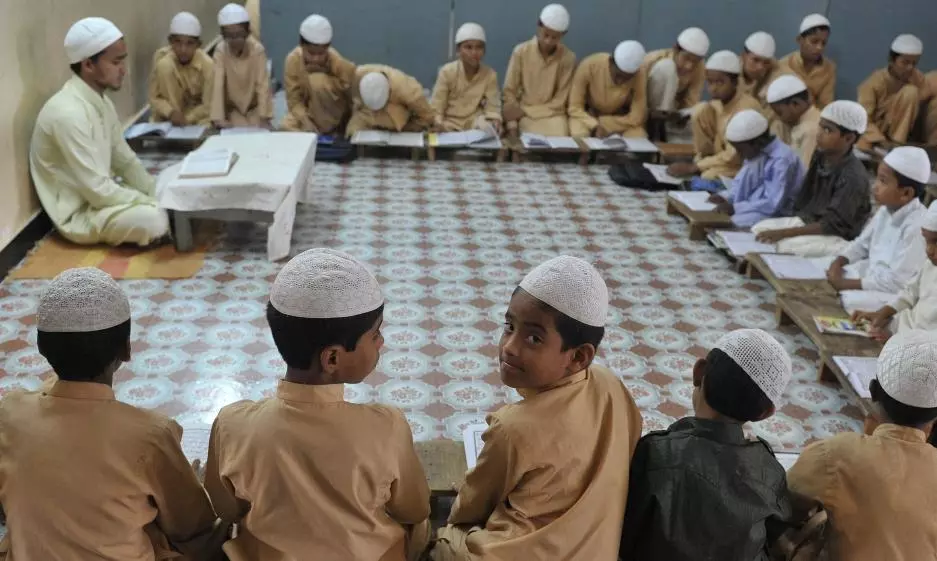
SC ruling leaves madrassa education in limbo
text_fieldsLucknow: Thousands of students pursuing higher education at Uttar Pradesh's Madrasa Board face an uncertain future following the Supreme Court’s recent ruling that declared the Kamil and Fazil degrees unconstitutional. The court's decision, announced on November 5, invalidated the degrees, which are considered equivalent to graduation and post-graduation, citing their conflict with the University Grants Commission (UGC) Act.
The ruling has left approximately 25,000 students enrolled in these courses in a state of limbo, with no clarity on how they will continue their education. Zaman Khan, General Secretary of the Teachers Association Madaris Arabia Uttar Pradesh, expressed concern over the situation, noting that the Madrasa Board will no longer be able to conduct exams for these courses. "The government must find a way to resolve the issue and ensure that the future of these students is not jeopardized," Khan stated.
In response, Minority Welfare Minister Om Prakash Rajbhar assured that the government would study the SC order thoroughly and explore legal avenues to resolve the issue. "We will consider all aspects and only then make a decision on whether students can be accommodated in other recognized universities," he said.
The Kamil and Fazil degrees, which had previously been equivalent to undergraduate and postgraduate qualifications, were not recognized for competitive exams or job placements outside madrassas. With the Supreme Court's ruling, the situation has worsened, leaving many degree-holders without employment options. Former Madrasa Board member Qamar Ali emphasized that the students should be provided an opportunity to continue their studies at UGC-recognized institutions.
The Uttar Pradesh Madrasa Board had previously proposed integrating its students into the Khwaja Moinuddin Chishti Urdu-Arabic-Persian University in Lucknow, but the proposal has yet to be acted upon.
As of now, the state has around 25,000 madrassas, with 16,500 recognized by the Madrasa Board. Of these, 560 receive state grants. The Supreme Court's October 5 ruling upheld the constitutional validity of the Uttar Pradesh Madrasa Education Board Act, 2004, but invalidated the higher education provisions related to Kamil and Fazil degrees due to their conflict with the UGC Act.
The court's decision has raised urgent questions about the future of madrasa education and the fate of thousands of students who have relied on these degrees for their educational and professional advancement.
With PTI Inputs











